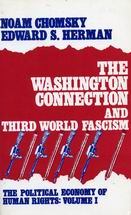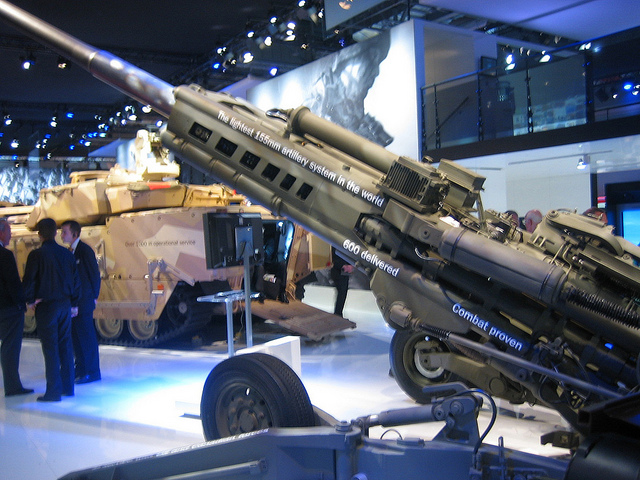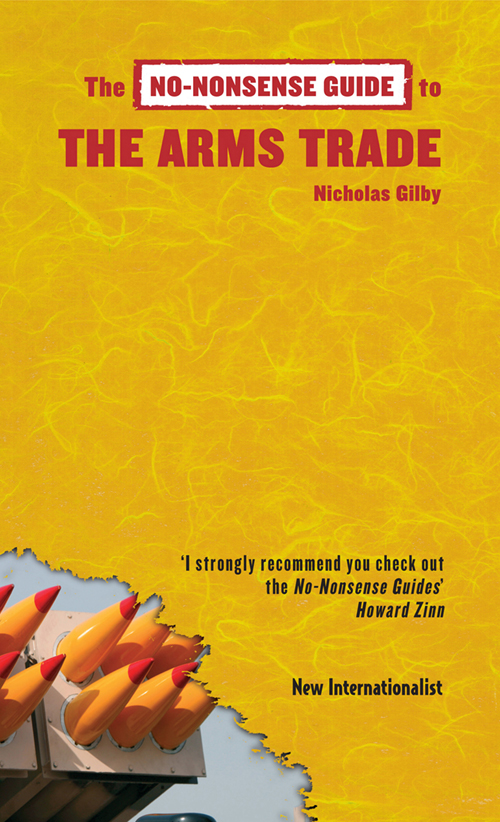|
|
|
|
|
|
|
Other Voices: The Connexions Newsletter
October 16, 2014
Is that a laptop in your closet?
At Connexions we put a lot of effort into preserving the
history of movements for social justice. We have a massive library of
documents on our Connexions.org website, and an even more massive collection of physical documents awaiting digitization.
We also have a bunch of ancient computers in our office, and
we put way too much effort into keeping them running.We’d welcome
donations of slightly older but still functional laptops and flatscreen
monitors. If by chance you have a laptop or monitor that still works but
you aren’t using anymore, we’d be happy to receive them.
We’re in downtown Toronto. You can reach us at 416-964-5735 or via the contact form on our website at /CxContactForm.php.
a
Enjoy this issue of Other Voices? Want to share with friends and family? Then we encourage you to share this link. All issues of Other Voices are available on the Connexions website at www.connexions.org/Media/CxNewsletter.htm. To subscribe, use this form.

|
|
Lying to Ourselves About the Air War
Most US citizens have never been subjected to an air raid.
They have never heard the roar of planes flying high above them while an
air raid siren wails, its whine competing with the planes’ roar and
piercing the audio centres of the brain making sequential thought
difficult if not impossible. Nor have they heard the sound of
bombs – canisters filled with high explosives and fire – whistling as they
fall through the air toward their targets on the ground. Nor have most
US citizens ever sat in a bomb shelter wondering if their homes will
survive the aerial assault they are hoping to survive themselves. The
fear one feels is unmistakable. Indeed, it is probably quite similar to
the fear a combatant feels in the heat of battle. There is no certainty
as to one’s survival until the bombs have stopped falling and the
siren’s all clear signal sounds. Even then, the possibility of
unexploded ordnance remaining on the ground makes that certainty less
than guaranteed. Read More
Keywords: Bombing - US Military
Factory and Lab: Israel's War Business
There’s not much left of
the high-tech car. In a warehouse about the size of an aircraft hangar,
its remains look tiny. There are no wheels, no chassis, just the angular
body of the car. And it’s not in good shape at all. There’s a gaping
hole in its side with edges of lacerated metal. “Rocket-propelled
grenade,” says Yoav Hirsh, smiling. Had a person been inside, he or she
would likely not have survived the blast. But there was no one behind
the wheel: The Guardium is a fully automated vehicle.
Pride radiates from Hirsh
-- who has a mix of gray and white hair, an athletic frame and a
determined look on his face -- when he talks about his cars. He’s the
CEO of G-Nius, one of first companies in the world able to produce an
army of robot fighters. The Guardium has been used since 2007 in patrols
along the border of the Gaza Strip. It can be guided by remote control
or can steer itself through a pre-selected route as its cameras and
sensors capture data about the surroundings. Read more
Keywords: Israeli Military - Military-industrial Complex
Denver students stage mass walk-out over US history ‘censorship’
Hundreds of Denver-area high school
students walked out of their classrooms in a mass protest against what
they call an attempt to censor their history curriculum by refocusing it
on topics that promote citizenship, patriotism and obedience.
Students at six Denver-area highs
schools walked out their classrooms en masse, protesting a plan by the
conservative-majority Jefferson County school board to push for
curriculum changes to Advanced Placement history courses to promote
patriotism and deference to authority. The proposed changes would
include the removal of topics that could ‘encourage’ civil disobedience
from textbooks and materials.
The protest was organized through
social media, encouraging students to stand outside the Jefferson County
School Administrative Building with placards which read “People didn’t die so we erase them,”“Educate free thinkers,” “There is nothing more patriotic than protest,” and “History is History.” Read more
Keywords: Historical Interpretation - US History
The Anti-Empire Report #132
William Blum: “Each of you I’m sure has met many people who support
American foreign policy, with whom you’ve argued and argued. You point
out one horror after another, from Vietnam to Iraq. From god-awful
bombings and invasions to violations of international law and torture.
And nothing helps. Nothing moves this person. Now why is that? Are these
people just stupid?I think a better answer is that they have certain
preconceptions. Consciously or unconsciously, they have certain basic
beliefs about the United States and its foreign policy, and if you don’t
deal with these basic beliefs you may as well be talking to a stone
wall.The most basic of these basic beliefs, I think, is a deeply-held
conviction that no matter what the United States does abroad, no matter
how bad it may look, no matter what horror may result, the government of
the United States means well. Their intentions are always honorable,
even noble. Of that the great majority of Americans are certain.”. Read more
Keywords: Intervention - Regime Change
Activists mount court challenge to Montreal’s anti-protest bylaw
As the City of Montreal cuts spending in pursuit of austerity,
two Montrealers who are challenging the city’s anti-protest bylaw are
questioning the city’s willingness to spend large amounts of money
defending the controversial bylaw. “It seems like there is room for
austerity measures around everything except repression,” said Julien
Villeneuve, better-known as Anarchopanda, in an interview. Documents
obtained by Villeneuve and Jaggi Singh, both plaintiffs in their own
separate court challenges against municipal bylaw P-6, show that the
city has decided to turn to private lawyers in order to defend the
regulation. The documents show that the city is seeking outside legal
counsel in the two cases. In the case of Singh, they are contracting the
firm for $40,000 in services (plus tax) and for Villeneuve, $70,000
(plus tax), to a total of $110,000 before taxes.. Read more
Keywords: Police - Legal Systems as Instruments of Oppression
The Emergence of Marx's Critique of Modern Agriculture
Examining Karl Marx’s notebooks, one realizes that he
gradually came to a truly critical and ecological comprehension of
modern agriculture. Although Marx was at first optimistic about the
positive effects of modern agriculture based on the application of
natural sciences and technology, he later came to emphasize the negative
consequences of agriculture under capitalism precisely because of such
an application, illustrating how it inevitably brings about disharmonies
in the transhistorical ‘metabolism’ between human beings and nature.
If, despite the intensive usage of synthetic fertilizers,
industrial agriculture under capitalism only exhausts land over the long
run, a socialist project needs to carry out a radical change. This
means learning to manage soils more holistically, using better rotations
and other management practices than possible given the logic of
capitalist markets. These practices should aim to maintain and build
soil organic matter and enhance the health of the soil and its
biological, chemical, and physical characteristics. Contrary to a common
critique of Marx’s “Prometheanism,” he does not overestimate the modern
development of technology at all. Instead, analyzing how the logic of
capital transforms the transhistorical metabolism between humans and
nature, Marx convincingly emphasizes the necessity of consciously
interacting with nature to enable a sustainable development of humanity
and nature, and he attests to the irrationality and contradictions of
the development of productive forces under the capitalist mode of
production. Read More
Keywords: Agriculture - Marxism Overviews
|

|
|
Treasures from the Archives
The Washington Connection and Third World Fascism: The Political Economy of Human Rights: Volume 1
Chomsky and Herman demonstrate,
with devasting logic and overwhelming documentation, that the purpose of
U.S. global policy is to make the world safe for exploitation by U.S.
corporate interests and that this has required and continues to require
the installation and support of brutal military/police dictatorships
throught the Third World. It also requires an apologetic ideology which
portrays all this as being in the highest interests of democracy and
human rights. Read more
Forgotten graffiti sheds new light on long, hot journeys to Vietnam
Military
historian Art Beltrone found the graffiti by chance. He and a filmmaker
had received permission to board the rusty old troop ship anchored in
Virginia's James river. They climbed steps up from a tugboat, crossed
the gangplank to open the door and found – a time capsule.Orange life
vests sat atop each bunk, still at the ready. There were notices pinned
to the bulletin board, dated 1967. "It was as though the men had just
left," said Lee Beltrone, Art's wife. "Papers left on desks, dirty
dishes in the galley."The graffiti was scrawled on the undersides of the
canvas, quadruple-decker bunks: names and hometowns of young men headed
to war in Vietnam, peace symbols, song lyrics, drawings of girlfriends
and calendars counting down the days until they could go back home. Read more
'Anthropologists, Spooks, and the Boys Who Went To War' by Rowan Cahill
They
are old men now, the youngest in his 80s; at most some 200 or so of
them remain. In the grim days of the war in the Pacific when Australia
faced the relentless drive southwards by Japanese armed forces, they
were recruited to the Allied war effort in Sydney, some as young as 15
years of age, and sailed to war in the waters of New Guinea, and beyond,
some to die, serving on Australian vessels, but under the American flag
and the command of the US Army.These veterans, all that remain of some
3000 who served, do not easily mesh with masculinist renderings of Anzac
mythology/military lore; the professional military history industry has
largely bypassed them. Some of them were boys, not metaphorically as
beloved by military cliché peddlers, but chronologically. Some of their
comrades were older, the oldest in his 70s; at least one father and son
team served, the father was just on 60, his son 16 and a half; some
others who served only had one arm, at least one only had one leg. And
their American leadership mainly comprised amateur soldiers. Read more
|

|
|
People's History and Grassroots Archives News: The “Yellow Book” of the Armed Forces
The names, nicknames and photos of
1,975 individuals classified as “delinquent terrorists” were included in
a 270-page report created on July 1987 by the Salvadoran military. The
existence of this document, called the “Yellow Book,” was revealed on
September 28 by the National Security Archive (NSA), the University of
Washington Center for Human Rights and the Human Rights Data Analysis
Group.
“Is the first-ever confidential
Salvadoran military document to be made public,” states an electronic
bulletin of the NSA. “And the only evidence to appear from the
Salvadoran Army´s own files of the surveillance methods used by security
forces to target Salvadoran citizens during the country´s 12-year civil
war.”
The “Yellow Book,” compiled by the
Intelligence Department of the Joint Staff of the Armed Forces, consists
of a systematic list with 1,915 entries, 1,857 identified by name,
photograph, and alleged connection to suspect organizations, including
unions, political parties and rebel groups of the Farabundo Martí
National Liberation Front (FMLN).
A hand-written note on the
document´s cover page asks the reader to “use it” and “make copies of
the photographs and put them on your bulletin board so you will know
your enemies,” indicating that the report was intended to aid security
forces in identifying the opposition. Read more
|

|
|
Topic of the Week: Arms Trade
The selling and trading of arms
around the globe, be it through governments, companies or other groups,
has had a profound effect in many parts of the world and continues to do
so. Many of the civil wars and insurgencies are fought using arms sold
to them through the international arms trade, often times through
questionable or illegal means. The trade of arms has only increased in
recent times as a result of a surplus of arms from the former Soviet
republics and as a result of countries and unions such as the United
States, China, Iran, Russia and the EU all vying for influence. For more
sources on the arms trade click here.
For additional information on the military-industrial complex as well
as the movements against the international trade of arm click here and here.You can also browse or use our search feature.
|
|
|
Burrows explains that military, government and corporate
entities together form a powerful, legitimate authority. A government
will support its military by organizing laws to better facilitate
international trade. Current military alliances like NATO and the
European Framework Agreement have consequences for the movement of
weapons. Organized arms fairs operate as both a showcase and a venue to
strengthen business relationships. Burrows details a list of warring
nations that are regular attendees, despite claims of exhibition hosts
that they are not willing to trade with undemocratic or human rights
abusing countries. Though suppliers try to make strategic deals,
shifting political relationships mean that a country may supply weapons
to a future enemy.
Arms tend to be re-sold to progressively poorer countries that
have lax import and environmental laws. De-regulated trade has allowed
some African nations to purchase arms and prioritize war efforts over
social stability and public health. Other valuable commodities include
torture equipment, restraints, electroshock devices, chemicals and gas,
which are often traded without stipulation for their use. Burrows argues
that by fueling known violence and oppression, suppliers legitimate
undemocratic regimes and indirectly condone human rights abuses.
The illegal arms trade is heavily dependent on its legal
counterpart and neither is regulated by an independent monitor. Lack of
market transparency obscures the value of deals and so bribes,
incentives and excessive hospitality are easily hidden. Research,
personnel, arms and other non-essential materials are trafficked legally
by governments and illegally by hired mercenaries and private military
companies.
In recent years, the UN and some NGOs have worked to abolish or
regulate the arms trade and have met with some success. Burrows presents
several activist groups and the steps they have taken toward this
end.This book cites relevant worldwide examples of countries involved in
the arms trade and explains the history of each case. It is an
informative and comprehensible guide to the arms trade that is perfect
for those who do not have a political science background.
Read more →
|

|
|
THE CORPORATION explores the nature and spectacular rise of
the dominant institution of our time. Taking its status as a legal
"person" to the logical conclusion, the film puts the corporation on the
psychiatrist's couch to ask "What kind of person is it?" The
Corporation includes interviews with 40 corporate insiders and critics -
including Noam Chomsky, Naomi Klein, Milton Friedman, Howard Zinn,
Vandana Shiva and Michael Moore - plus true confessions, case studies
and strategies for change.
Read more →
|
|
|
COAT is a national network of individuals and organizations in
Canada that began in late 1988 to organize opposition to ARMX '89, which
was the country's largest weapons bazaar. COAT has continued to expose
and oppose Canada's role in the international arms trade, particularly
where there is trade to governments which are engaged in war or which
violate human rights.
Since its formation, the Coalition to Oppose the Arms Trade (COAT)
has made significant contributions to Canada's peace movement. As an
Ottawa-based organization, supported by a network of individuals and
groups across Canada, COAT made great headway in exposing and opposing
many military export events held in the nation's capital.
Throughout the 1990's, COAT continued to organize major events,
including anti-war rallies, marches, peace vigils and conferences in
Ottawa. COAT has also coordinated campaigns against war/air shows, war
toys and Canada's active participation, and hypocritical role, in
various U.S-led wars. Much of our work has helped to challenge the
dominant cultural mythology that Canada is a great force for peace in
the world. Unfortunately, the reality of the Canadian government and
corporate complicity in war and injustice does not correspond to the the
mythology.
Read more →
|

Connexions Calendar
October 18 to 19, 2014
Ontario Health Coalition: Health Action Assembly and Conference
Toronto, ON
October 20 to 22, 2014
ICCE2014: International Conference & Exhibition on Clean Energy
Vancouver, BC
October 25, 2014
Glen Greenwald speaks in Ottawa
Ottawa, ON
October 30, 2014
Legal Toolkit Workshop for Environmental Protection
Toronto, ON
Read more →
|
Seeds of Fire
October 16, 1856
Birth of Oscar Wilde (1854-1900), playwright, poet, epigramist, and socialist.
October 16, 1859
John Brown’s raid on Harpers Ferry begins. Brown and his group, all
deeply committed to the anti-slavery cause, have planned the raid in the
hope of obtaining guns, freeing slaves, and triggering an armed revolt
against slavery. By October 18, the raid has failed; some of Brown’s men
are dead, and Brown and six other raiders are subsequently executed.
October 16, 1970
Canadian Prime Minister Pierre Trudeau declares a state of apprehended
insurrection and invokes the War Measures Act in the wake of two
kidnappings – those of James Cross and Pierre Laporte – by members of
the FLQ. Under the War Measures Act, habeas corpus is suspended,
allowing police to arrest and detain people without charge. Soldiers are
sent to patrol the streets of Montreal. While the War Measures Act is
in force, hundreds of people are arrested and held without charge.
Read more →
|

Trying to change the world? We can help.
Getting your story across can be an uphill battle when your group is challenging the status quo. Our partner organization SOURCES can help you get your message out. As a SOURCES
member, you have an array of media relation tools at your disposal to
promote your events, books, articles, videos, etc. as well as tools to
get you in contact with those who can help you achieve your goals. The SOURCES news release
service is especially valuable for groups wants to inform the media
(and the public) about their issues. For more information about Sources please click this link.
Your support is needed to keep Connexions going
Most of the work of the Connexions
project is done by volunteers, but our expenses include rent, phone and
computer costs and technical support, as well as expenses related to our
ongoing project of converting printed archival materials into digital
formats. You can make a one time or regular monthly contribution through
the donate page on the Connexions website.
|
Bequests
Many of us have
made working for social justice a lifetime commitment. If you are
thinking about leaving a legacy for social justice that will live on,
you might want to consider leaving a bequest to Connexions in your will.
If you'd like to discuss this option, please contact us: Connexions
Archive and Library, Toronto, ON M6G
1L9, 416-964-5735.
|
|
|
Follow us on twitter to stay up to date with company news and other information.
|
|
Like us on Facebook to keep up with our news, updates and other discussions.
|
|
|
Copyright
Connexions 2014. Contents are licensed under a Creative Commons
Attribution Non-Commercial License. This means you are welcome to share
and republish the contents of this newsletter as long as you credit
Connexions, and as long as you don’t charge for the content.
Other Voices: The Connexions Newsletter, is available online here
Thanks to Tahmid Khan and Ulli Diemer for their work on this newsletter.
Connexions
812A Bloor Street West, Suite 201
Toronto ON M6G 1L9 Canada
Phone: 416-964-5735
www.connexions.org
Enjoy this issue of Other Voices? Want to share with friends and family? Then we encourage you to share this link. All issues of OtherVoices are available on the Connexions website at /Media/CxNewsletter.htm. To subscribe, use this form.
If you don’t want to receive emails from us anymore, click here to unsubscribe.
|
|







